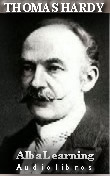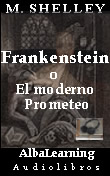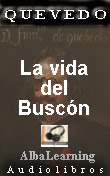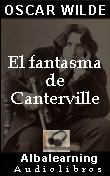|
|
|
|
| | HOME | AUDIOLIBROS | AMOR | ERÓTICA | HUMOR | INFANTIL | MISTERIO | POESÍA | NO FICCIÓN | BILINGUAL | VIDEOLIBROS | NOVEDADES | | |||||||||||||||
|
|
|
|
|||||||||||||
|
|||||||||||||||
 |
"An Imaginative Woman" (Pag 3) |
| Biografía de Thomas Hardy en Wikipedia | |
| An Imaginative Woman |
| << | 3 | >> |
| Indice | ||
"Mrs. Hooper, have you a photograph of - the gentleman who lived here?" She was getting to be curiously shy in mentioning his name. "Why, yes. It's in the ornamental frame on the mantelpiece in your own bedroom, ma'am." "No; the Royal Duke and Duchess are in that." "Yes, so they are; but he's behind them. He belongs rightly to that frame, which I bought on purpose; but as he went away he said: "Cover me up from those strangers that are coming, for God's sake. I don't want them staring at me, and I am sure they won't want me staring at them." So I slipped in the Duke and Duchess temporarily in front of him, as they had no frame, and Royalties are more suitable for letting furnished than a private young man. If you take 'em out you'll see him under. Lord, ma'am, he wouldn't mind if he knew it! He didn't think the next tenant would be such an attractive lady as you, or he wouldn't have thought of hiding himself, perhaps." "Is he handsome?" she asked timidly. "I call him so. Some, perhaps, wouldn't." "Should I?" she asked, with eagerness. "How old is he?" "Several years older than yourself, ma'am; about thirty -one or two, I think." Ella was a matter of fact, a few months over thirty herself; but she did not look nearly so much. Though so immature in nature, she was entering on that tract of life in which emotional women begin to suspect that last love may be stronger than first love; and she would soon, alas, enter on the still more melancholy tract when at least the vainer ones of her sex shrink from receiving a male visitor otherwise than with their backs to the window or the blinds half down. She reflected on Mrs. Hooper's remark, and said no more about age. Just then a telegram was brought up. It came from her husband, who had gone down the Channel as far as Budmouth with his friends in the yacht, and would not be able to get back till next day. After her light dinner Ella idled about the shore with the children till dusk, thinking of the yet uncovered photograph in her room, with a serene sense of in which this something ecstatic to come. For, with the subtle luxuriousness of fancy in which this young woman was an adept, on learning that her husband was to be absent that night she had refrained from incontinently rushing upstairs and opening the picture-frame, preferring to reserve the inspection till she could be alone, and a more romantic tinge be imparted to the occasion by silence, candles, solemn sea and stars outside, than was afforded by the garish afternoon sunlight. The children had been sent to bed, and Ella soon followed, though it was not yet ten o'clock. To gratify her passionate curiosity she now made her preparations, first getting rid of superfluous garments and putting on her dressing-gown, then arranging a chair in front of the table and reading several pages of Trewe's tenderest utterances. Next she fetched the portrait-frame to the light, opened the back, took out the likeness, and set it up before her. It was a striking countenance to look upon. The poet wore a luxuriant black moustache and imperial, and a slouched hat which shaded the forehead. The large dark eyes described by the landlady showed an unlimited capacity for misery, they looked out from beneath well-shaped brows as if they were reading the universe in the microcosm of the confronter's face, and were not altogether overjoyed at what the spectacle portended. Ella murmured in her lowest, richest, tenderest tone: "And it's you who've so cruelly eclipsed me these many times!" As she gazed long at the portrait she fell into thought, till her eyes filled with tears, and she touched the cardboard with her lips. Then she laughed with a nervous lightness, and wiped her eyes. She thought how wicked she was, a woman having a husband and three children, to let her mind stray to a stranger in this unconscionable manner. No, he was not a stranger! She knew his thoughts and feelings as well as she knew her own; they were, in fact, the self-same thoughts and feelings as hers, which her husband distinctly lacked; perhaps luckily for himself, considering that he had to provide for family expenses. "He's nearer my real self, he's more intimate with the real me than Will is, after all, even though I've never seen him," she said. She laid his book and picture on the table at the bedside, and when she was reclining on the pillow she re-read those of Robert Trewe's verses which she had marked from time to time as most touching and true. Putting these aside she set up the photograph on its edge upon the coverlet, and contemplated it as she lay. Then she scanned again by the light of the candle the half-obliterated pencillings on the wallpaper beside her head. There they were - phrases, couplets, bouts-rimes, beginnings and middles of lines, ideas in the rough, like Shelley's scraps, and the least of them so intense, so sweet, so palpitating, that it seemed as if his very breath, warm and loving, fanned her cheeks from those walls, walls that had surrounded his head times and times as they surrounded her own now. He must often have put up his hand so - with the pencil in it. Yes, the writing was sideways, as it would be if executed by one who extended his arm thus. These inscribed shapes of the poet's world, "Forms more real than living man, Nurslings of immortality," were, no doubt, the thoughts and spirit-strivings which had come to him in the dead of night, when he could let himself go and have no fear of the frost of criticism. No doubt they had often been written up hastily by the light of the moon, the rays of the lamp, in the blue-grey dawn, in full daylight perhaps never. And now her hair was dragging where his arm had lain when he secured the fugitive fancies; she was sleeping on a poet's lips, immersed in the very essence of him, permeated by his spirit as by an ether. While she was dreaming the minutes away thus, a footstep came upon the stairs, and in a moment she heard her husband's heavy step on the landing immediately without. "Ell, where are you?" What possessed her she could not have described, but, with an instinctive objection to let her husband know what she had been doing, she slipped the photograph under the pillow just as he flung open the door with the air of a man who had dined not badly. "O, I beg pardon," said William Marchmill. "Have you a headache? I am afraid I have disturbed you." "No, I've not got a headache," said she. "How is it you've come?" "Well, we found we could get back in very good time after all, and I didn't want to make another day of it, because of going somewhere else tomorrow." "Shall I come down again?" "O, no. I'm as tired as a dog. I've had a good feed, and I shall turn in straight off. I want to get out at six o'clock tomorrow if I can . . . . I shan't disturb you by my getting up; it will be long before you are awake." And he came forward into the room. While her eyes followed his movements, Ella softly pushed the photograph further out of sight. "Sure you're not ill?" he asked, bending over her. "No, only wicked!" "Never mind that." And he stooped and kissed her. "I wanted to be with you tonight." Next morning Marchmill was called at six o'clock; and in waking and yawning he heard him muttering to himself. "What the deuce is this that's been crackling under me so?" Imagining her asleep he searched round him and withdrew something. Through her half-opened eyes she perceived it to be Mr. Trewe. "Well, I'm damned!" her husband exclaimed. "What, dear?" said she. "O, you are awake? Ha! ha!" "What do you mean?" "Some bloke's photograph - a friend of our landlady's, I suppose. I wonder how it came here; whisked off the mantelpiece by accident perhaps when they were making the bed." "I was looking at it yesterday, and it must have dropped in then." "O, he's a friend of yours? Bless his picturesque heart!" Ella's loyalty to the object of her admiration could not endure to hear him ridiculed. "He's a clever man!" she said, with a tremor in her gentle voice which she herself felt to be absurdly uncalled for. "He is a rising poet - the gentleman who occupied two of these rooms before we came, though I've never seen him." "How do you know, if you've never seen him?" "Mrs. Hooper told me when she showed me the photograph." "O, well, I must up and be off. I shall be home rather early. Sorry I can't take you today dear. Mind the children don't go getting drowned." That day Mrs. Marchmill inquired if Mr. Trewe were likely to call at any other time. "Yes," said Mrs. Hooper. "He's coming this day week to stay with a friend near here till you leave. He'll be sure to call." Marchmill did return quite early in the afternoon; and, opening some letters which had arrived in his absence, declared suddenly that he and his family would have to leave a week earlier than they had expected to do - in short, in three days. "Surely we can stay a week longer?" she pleaded. "I like it here." "I don't. It is getting rather slow." "Then you might leave me and the children!" "How perverse you are, Ell! What's the use? And have to come to fetch you! No: we'll all return together; and we'll make out our time in North Wales or Brighton a little later on. Besides, you've three days longer yet." It seemed to be her doom not to meet the man for whose rival talent she had a despairing admiration, and to whose person she was now absolutely attached. Yet she determined to make a last effort; and having gathered from her landlady that Trewe was living in a lonely spot not far from the fashionable town on the Island opposite, she crossed over in the packet from the neighbouring pier the following afternoon. What a useless journey it was! Ella knew but vaguely where the house stood, and when she fancied she had found it, and ventured to inquire of a pedestrian if he lived there, the answer returned by the man was that he did not know. And if he did live there, how could she call upon him? Some women might have the assurance to do it, but she had not. How crazy he would think her. She might have asked him to call upon her, perhaps; but she had not the courage for that, either. She lingered mournfully about the picturesque seaside eminence till it was time to return to the town and enter the steamer for recrossing, reaching home for dinner without having been greatly missed. At the last moment, unexpectedly enough, her husband said that he should have no objection to letting her and the children stay on till the end of the week, since she wished to do so, if she felt herself able to get home without him. She concealed the pleasure this extension of time gave her; and Marchmill went off the next morning alone. But the week passed, and Trewe did not call. On Saturday morning the remaining members of the Marchmill family departed from the place which had been productive of so much fervour in her. The dreary, dreary train; the sun shining in moted beams upon the hot cushions; the dusty permanent way; the mean rows of wire - these things were her accompaniment: while out of the window the deep blue sea-levels disappeared from her gaze, and with them her poet's home. Heavy-hearted, she tried to read, and wept instead. |
||
| << | 3 | >> |
|
|
|
AUTORES RECOMENDADOS |
 |
 |
 |
 |
 |
 |
 |
 |
|
¿Cómo descargar los audiolibros? Síganos en: |
|
||
|---|---|---|---|
|
©2021 AlbaLearning (All rights reserved) |
|---|